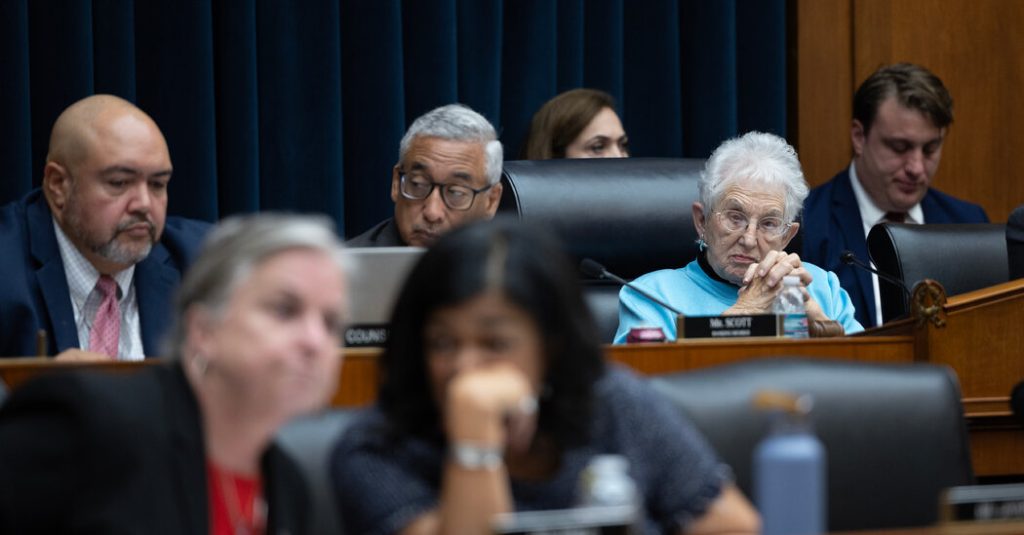Virginia Foxx, a Republican congresswoman from North Carolina, has been targeting elite schools in recent months as the chairwoman of the House committee on education. She led a hearing in December that resulted in the resignations of the presidents of University of Pennsylvania and Harvard. Foxx has launched an investigation into a number of institutions for their handling of antisemitism claims, subpoenaing internal documents and calling Jewish students to testify. On Wednesday, she will preside over a hearing with officials at Columbia University. Her efforts are viewed by some as a pushback against perceived double standards and a move towards meritocracy over equity.
Foxx, who prefers not to use the term ‘elite’ for these schools, draws on her personal journey growing up in a rural area without amenities like running water and electricity. Despite humble beginnings, she pursued higher education, earning a doctorate from the University of North Carolina and later entering politics and education. Her religious beliefs and identification with the underdog inform her approach to dealing with campus controversies, particularly those related to the Israel-Hamas conflict. Foxx has taken a strong stance against rising antisemitism on prominent campuses, seeing it as unconscionable that students feel unsafe and that administrations are not addressing the issue.
Representing a solidly Republican district in a politically diverse state, Foxx’s views align with conservative values. She opposes abortion rights and transgender women competing in women’s sports. She has expressed concerns about college student loan debt and has made controversial statements regarding various issues in the past. Despite her conservative stance, she maintains a personal connection to her constituents in her district, reflecting her rural upbringing and values.
Born in New York City to working-class parents, Foxx moved to western North Carolina at a young age where she faced challenges but persevered through hard work and determination. She pursued higher education, eventually earning a doctorate, and entered politics initially by serving on a school board and then in the State Legislature before being elected to Congress in 2005. Her dedication to community colleges and her belief in the importance of education for all individuals have been driving forces behind her career in politics and education.
Foxx’s recent efforts to address antisemitism on college campuses have garnered national attention, particularly after the resignation of several university presidents following contentious hearings. She maintains a strong stance against discrimination of any form and cites biblical teachings about supporting the Jewish people. Her constituents, she says, support her efforts in exposing and addressing antisemitism, aligning with her beliefs and values. Despite criticism and differing opinions, Foxx remains steadfast in her commitment to representing her community and advocating for equal treatment and opportunities in education.
As she continues to lead investigations and hearings on higher education issues, particularly in relation to discrimination and equity, Virginia Foxx remains a controversial figure in the political sphere. Her dedication to addressing antisemitism and ensuring fair treatment in education is rooted in her personal experiences and beliefs. While some view her actions as a partisan attack, others see them as necessary steps towards accountability and equity in higher education institutions. Foxx’s journey from a rural upbringing to a prominent role in Congress reflects her commitment to supporting individuals who may not have traditional educational backgrounds, and her influence as a congresswoman continues to shape policy and dialogue on higher education issues.


